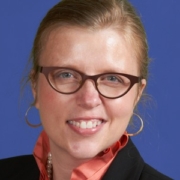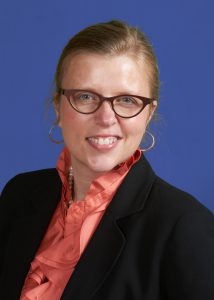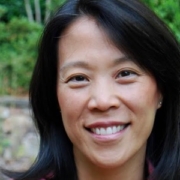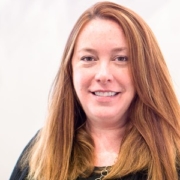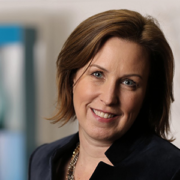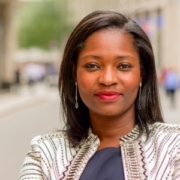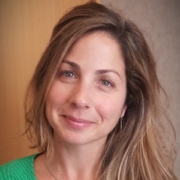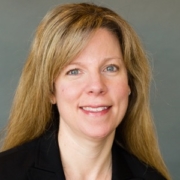Mover and Shaker: Carey Ryan, Director, Citi
Hard work is a key component, but just one of many that will lead to success, finds Citi’s Carey Ryan.
She says she put her head down and produced for years, which worked well until she moved into more senior roles and had an instance that reframed her thinking: She had thought she had hit one project out of the park only to find out she had completely missed the mark.
“After I got over the shell shock, I analyzed what I’d missed, and part of it was that I hadn’t put the time and effort into thoroughly understanding my audience and their motivation and what was driving them,” she says, noting that when she looks at other similar moments when she didn’t do as well as she’d hoped it almost always leads back to a need to think more critically about the audience.
That has led to one of her favorite mottos that she picked up at a sales training years ago: “So what?” Ryan believes you have to ask that question every day from the perspective of your audience and the people you’re interacting with to successfully meet their needs.
She also believes a little luck is necessary, but it’s difficult to come by without the hard work. She echoes that success needs that hard work, but also includes understanding your audience; identifying where you can bring true value; and realizing that it’s ok to fear change but it’s important to always find the opportunity in any situation.
A Career Built on Adaptation
Learning to adapt has been the cornerstone of her path upward from the beginning, with her first job at a small software company in Portland, Ore., as a technical writer. She was hired after she sent a blind resume and letter; they mentioned the available writing job and she said “Sure, I can do that!”
As someone who sees life with a “glass-half-full perspective,” Ryan found that while she didn’t love the exact position, being part of the small software company gave her the opportunity to do a little bit of everything – such as going on client implementations and testing software — whatever was needed when and where it was needed.
“During this first phase of my career I learned to experience entrepreneurial thinking and the impact each individual has on revenue and expense — how everything is connected to drive success.”
The firm was acquired by a larger software company that spent a period of time trying to figure out the right place for the division, which meant she had to learn to adapt to various management styles and goals. She moved into product management and experienced working in a bigger environment where change was a constant.
Through one of the reorganizations, she and a few of her colleagues moved to the company’s headquarters in New Jersey. Two years later, she came with a sponsor to Citi, where she again learned to adapt to a larger environment — 350,000 people at the time.
She’s been at Citi 11 years now, and is currently part of the Chief Operating Office that serves the global Institutional Clients Group (ICG) Operations and Technology organization. One of her team’s responsibilities is to increase the focus on program management for the organization.
“It’s the kind of challenge that is exciting to me, to find ways to create an impact across the global organization,” she says.
“I am proud of the path I’ve taken and the collection of achievements that have allowed me to navigate the various changing roles I’ve held and the teams I’ve served.”
Those roles have reinforced that you don’t have to know “what you want to be when you grow up.”
“I always thought you had to know and since that wasn’t my bent, it caused me a lot of stress at first,” she says, adding that she considers herself an ambitious person so it took her a while to realize how those two qualities can blend. “My strength is in my utility, that I can play the role that is needed at the time,” she says, noting that the vision of a career as a jungle gym, not a ladder, is an apt description for hers.
In fact, she says that if you had asked her five years ago if this is what she would be doing, she would have said no. “But the organization had a need, and my team views it as an opportunity to set the path going forward to achieve our goals and drive value for the organization.”
The Power of Relationships in Success
Ryan notes that before she headed to Citi, her sponsor advocated for her for a position in a business about which she truly didn’t know much; yet he was certain she had the skill sets he needed. “He put me forward in a situation where I would not have been successful without that support,” she says.
Over the years she has been fortunate to have role models like him and others who she describes as fearless individuals who tackle challenges with poise; strategic thinkers who can see the path forward and connect the dots before others do; straight shooters who tell it like it is; and individuals who always put the good of the team and the organization first. “All of these strong leaders have demonstrated skills to emulate.”
Ryan became involved with Citi’s Women’s Leadership Council a few years ago when she was invited to a training on executive presence and personal brand. The people she met there spurred her to get more involved and she has since found the group has provided value through skill development, networking and peer coaching.
She is also actively involved in Citi’s diversity initiatives, focused on driving not only women but other diverse groups forward for the good of the business.
Ryan is now in her third year co-chairing the Emerging Talent Program, a group composed of Vice President and Senior Vice President-level women who have graduated from the Developing Talent Program and want to continue building their network and skills to move their careers forward.
Finally, the relationship that powers her the most is her “amazing family.” She says that her husband and parents are her partners in making her life work and keeping things moving – from the big things, to the more mundane, like making sure her four-year-old daughter has clean socks to wear.
She also counts her friends as a key support system. “It’s not just the family you’re given but the family you choose, and I am lucky that both of these families are incredible.”

